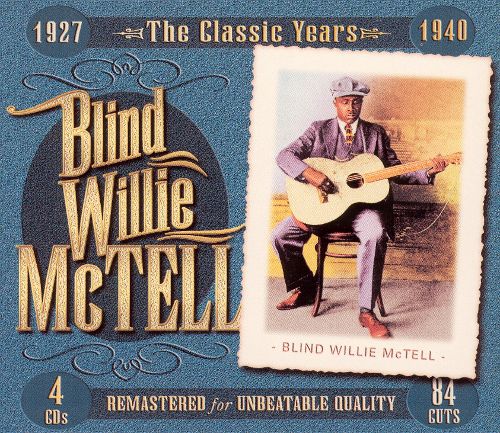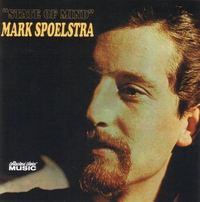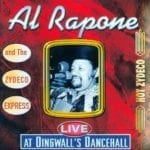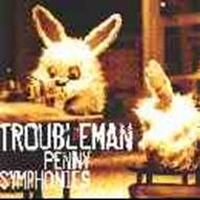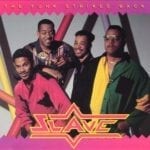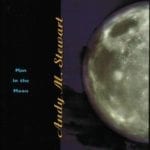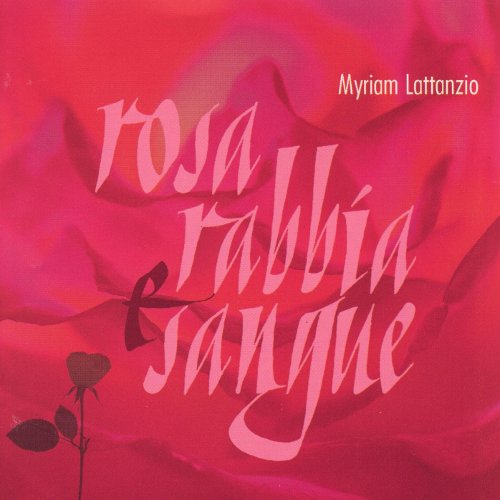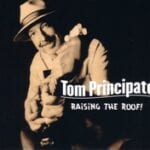Blind Willie McTell – The Classic Years 1927-1940 – 4 CD
€24,20
Out of stock
Description
According to most accounts Blind Willie McTell was born in 1901, in Thomson, GA. He attended schools for the blind, locally and in New York. He read Braille and may have had some musical education. In the '20s he took up 12-string guitar. Others used it just for resonant strumming, but McTell had a complex picking technique. His first recordings were in 1927 for a Victor field trip. Most notable is Mama 'Taint Long Fo' Day, featuring superb slide work. The session yielded two releases. Neither was a hit but Victor recorded four more McTell sides when they returned to Atlanta a year later. Blind Willie's most famous song, Statesboro Blues, was recorded for Victor in 1928. His playing is masterly - his keening voice perfect for the material. Perhaps this is why the hitless McTell recorded so regularly. Willie also recorded for Columbia - as 'Blind Sammie'. Many bluesmen did this - but few so distinctively. Either Victor didn't recognize their artist or ignored any similarities. Would Victor willingly have missed Atlanta Strut, with its imitations of bass, cornet, mandolin and trombone' Blind Willie, Blind Sammie and - another alias - Georgia Bill on OKeh continued to record into the early 1930s. As the decade wore on, Willie returned to 'scuffling' for tips. In 1940 john and Ruby Lomax visited Atlanta. Willie, popular in town, was easily found. The Lomaxes recorded him talking and singing for two hours. Notable is Dying Crapshooters Blues - closely related to The Streets Of Laredo. The heartfelt gambling references suggest Willie himself suffered betting losses. The monologues give insights into a society long gone. He cut three more postwar sessions but by then he performed only religious material under his own name. The Blues were billed as by 'Barrelhouse Sammy.' In the 1950s, Blind Willie was still singing and playing around Atlanta. He died in 1959. Accounts of his later years vary. In one version he was the pastor of a local church.
Track Listing:
CD1: Atlanta – 1927-1931
1. Writin' Paper Blues - 3:11 2. Stole Rider Blues - 3:09 3. Mama, 'Tain't Long Fo' Day - 2:57 4. Mr. McTell Got the Blues - 2:20 5. Mr. McTell Got the Blues - 2:25 6. Three Women Blues - 2:44 7. Dark Night Blues - 2:51 8. Statesboro Blues - 2:31 9. Loving Talking Blues - 2:36 10. Atlanta Strut - 3:10 11. Travelin' Blues - 3:14 12. Come on Around to My House Mama - 3:03 13. Kind Mama - 2:58 14. Teasing Brown - 2:42 15. Drive Away Blues - 3:14 16. This Is Not the Stove to Brown You Bread - 2:32 17. Love Changing Blues - 3:10 18. Talkin' to Myself - 3:11 19. Razor Ball - 3:17 20. Southern Can Is Mine - 3:14 21. Broke Down Engine Blues - 3:08 22. Stomp Down Rider - 3:08 23. Scarey Day Blues - 3:01
CD2: Atlanta – New York – 1931-33
1. Rough Alley Blues - 3:19 2. Experience Blues - 3:13 3. Painful Blues - 2:54 4. Low Rider's Blues - 3:19 5. Georgia Rag - 3:06 6. Low Down Blues - 3:13 7. Rollin' Mama Blues - 3:05 8. Lonesome Day Blues - 3:17 9. Mama, Let Me Scoop for You - 3:10 10. Searching the Desert for the Blues - 3:09 11. Warm It Up to Me - 2:57 12. It's Your Time to Worry - 3:04 13. It's a Good Little Thing - 2:52 14. You Was Born to Die - 2:50 15. Lord Have Mercy If You Please - 2:59 16. Don't You See How This World Made a Change - 2:55 17. Savannah Mama - 3:16 18. Broke Down Engine - 3:14 19. Broke Down Engine, No. 2 - 2:54 20. My Baby's Gone - 2:59 21. Love-Makin' Mama - 2:56 22. Death Room Blues - 2:58 23. Death Cell Blues - 3:10 24. Lord, Send Me an Angel - 2:53
CD3: New-York – Chicago – 1933-35
1. B and O Blues, No. 2 - 3:02 2. B and O Blues, No. 2 - 2:50 3. Weary Hearted Blues - 3:02 4. Bell Street Lightnin’ - 2:54 5. Southern Can Mama - 2:56 6. Runnin' Me Crazy - 3:07 7. East St. Louis Blues - 2:53 8. Ain't It Grand to Be a Christian - 3:10 9. We Got to Meet Death One Day - 2:59 10. We Got to Meet Death One Day - 2:53 11. Don't Let Nobody Turn You Around - 2:45 12. I Got Religion, I'm So Glad - 3:13 13. Dying Gambler - 3:00 14. God Don't Like It - 2:46 15. Bell Street Blues - 2:51 16. Let Me Play With Yo' Yo-Yo - 3:05 17. Lay Some Flowers on My Grave - 3:24 18. Ticket Agent Blues - 3:17 19. Cold Winter Day - 3:10 20. Your Time to Worry - 2:38 21. Cooling Board Blues - 3:18 22. Hillbilly Willie's Blues - 2:44
CD4: Atlanta - 1948
1. Just as Well Get Ready, You Got to Die / Climbing High .Mountans: Tryin’ To Get Home - 2:57 2. Monologue on Accidents - 1:56 3. Boll Weevil - 1:58 4. Delia - 2:33 5. Drying Crapshooter's Blues - 3:11 6. Will Fox - 1:38 7. I Got to Cross the River Jordan - 4:38 8. Monologue on Old Songs: Old Time Religion / Amen - 3:07 9. Amazing Grace - 1:21 10. Monologues on: The History of the Blues / Life as Maker of Records: On Himself - 5:44 11. King Edward Blues - 1:49 12. Murderer's Home Blues - 3:05 13. Kill-It-Kid Rag - 2:43 14. Chainey - 2:50 15. I Got to Cross the River of Jordan - 1:50
Reviews:
1. AllMusic - Bruce Eder
There are some box sets that seem like overkill, beyond the pale for all but the very most hardcore fans, and others -- a little more obvious in their justification -- that never achieve much currency beyond the ranks of the serious fans and as easy Christmas ideas for their relatives. And then there are the ones that, based on the sheer credibility of the artists involved -- Eric Clapton, Elvis Presley, the Beatles, Bob Dylan, Frank Sinatra -- become practically standard-issue for any serious music listener; you expect to find at least one, and more likely two of them on a lot of shelves. The Classic Years 1927-1940 ought to fit into the latter category, despite the fact that Blind Willie McTell never had a hit record in a recording career lasting nearly 30 years -- he also didn't make Rolling Stone's list of the 100 greatest guitarists of the twentieth century, even though he could play circles about three-fourths of those who did. Some music and musicians just speak too well for themselves and their genre and style, and in this case all 84 cuts have value, and a lot more value than JSP Records is asking in its retail price. From McTell's earliest session, in October 1927 to his November 1940 session for John Lomax, he is superbly represented here by his voice, guitar, and songs, and unlike many comprehensive compilations of pre-World War II blues, there are no apologies needed for the quality of most of the sources or the resulting tracks. However it happened, JSP has assembled a series of generally superbly clean and bright masters (with some exceptions, especially in the mid-'30s sides, some of which have surface noise) going back to the late '20s, which, in their current digital state, showcase McTell's dazzling finger-picking style on the 12-string guitar. Listeners will swear there's more than one guitarist playing, but there isn't on the early sides, and what he gets out of the one guitar makes it sound almost like a trio, covering rhythm as well as lead parts, but without any feeling of artifice. And when he gets teamed up with fellow blues virtuoso Curley Weaver (who also escaped Rolling Stones' net) in the 1930s, it's a collaboration between two geniuses that can spin your head if you listen closely enough to the playing. Coupled with the tracks on which Ruth Mary Willis sings or shares vocals with McTell, there's more than enough variety here to make this entertaining for 30 minutes or three hours at a sitting. Concerning the 1940 Lomax session masters, they have some moderate noise, but they're so well recorded otherwise and so valuable as musical documents and historical artifacts that the slight distraction can be ignored. These sides went unreleased for decades and slot perfectly into the period between McTell's final commercial recordings as a contemporary country blues artist during the era of the last commercial gasp of acoustic country blues and his re-emergence after World War II as a representative of a now-archaic style of blues. What's more, Lomax got McTell to talk as well as play for his microphone. The annotation is very thorough and the mere fact that this set pulls together all of McTell's various sides for Victor, Columbia, and others makes it essential listening for his fans or admirers of 1930s acoustic blues.
You may also like…
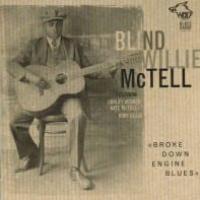 Sale!
Sale! Blind Willie McTell
Broke Down Engine Blues
Blind Willie McTell (born William Samuel McTier; May 5, 1898 – August 19, 1959) was a Piedmont blues and ragtime…
Read more Add to cart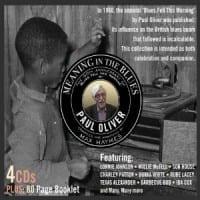
Various
Meaning Of The Blues – Paul Oliver4CD + 80 Pages Booklet
Otis Harris, Sam Collins, Bukka White, Rudy Foster, Charley Patton, Funny Papa Smith, Freddie Spruell, Charley Lincoln, George Noble, Tommy…
Read more Read more€24,20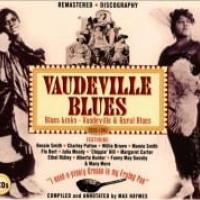
Various
Blues Links – Vaudeville & Rural Blues 1919–1941 – 4CD
A fascinating compilation exploring the interaction between the Urban, Vaudeville Blues and Country Blues performers. This music used to be…
Read more Read more€24,20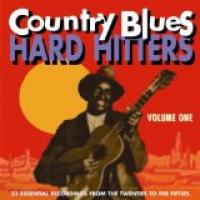 Sale!
Sale! Various
Country Blues Hard HittersVol. 1The Twenties to The Fifties
The Twenties to The Fifties
This CD contains a cross section of some of the finest country blues recorded in the 20’s and 30’s, with…
Read more Add to cart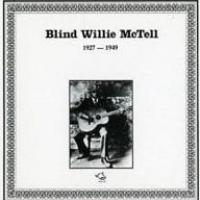
Blind Willie McTell
1927-1949
Blind Willie McTell was one of the best Blues musicians ever! Here are recordings from 1927-1949. There are recordings from…
Read more Add to cart€12,10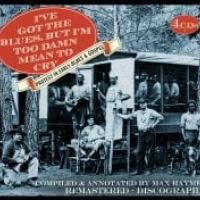
Various
I’ve Got The Blues But I’m Too Damn Mean To Cry4CD
Protest, resentment, despair. Well, it’s the blues after all. But frequently the message is expressed with wit and humour, so…
Read more Read more€24,20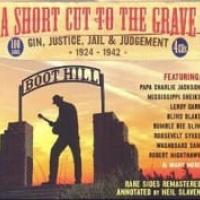 Sale!
Sale! Various
A Short Cut To The Grave – Gin, Justice, Jail & Judgement 1924-1942 – 4CD
A fascinating compilation devoted to the various themes of sin and wrongdoing-Gambling-Alcohol-Coke and in-Prison-Death. With artists such as Blind Lemon…
Read more Add to cart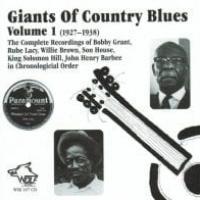
Various
Giants Of Country BluesVol. 11927-1938
1927-1938
Here are the complete 1927-38 recordings by the following artists, most of them were called Delta Blues artists! The best known is Son House,…
Read more Add to cart€12,10
